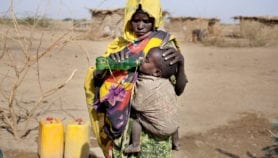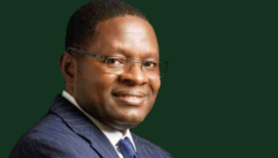By: Catherine Brahic
Send to a friend
The details you provide on this page will not be used to send unsolicited email, and will not be sold to a 3rd party. See privacy policy.
The responsibility for managing risks relating to climate change needs to be shifted away from environmental agencies and distributed to high-ranking policy makers in all relevant sectors, agreed climate change specialists at a meeting in Paris last week (11-12 November).
The meeting, on sustainable development and climate change, was organised by the Organisation for Economic Co-operation and Development (OECD).
It focused on social and economic impacts of climate change in developing countries, and emphasised the need both to adapt to changes already occurring, and to attempt to mitigate future effects.
There was unanimous consent among participants that government agencies – such as energy, water management, agriculture, and tourism agencies – whose sectors are affected by climate change need to be given responsibility for risk management.
“Climate change is not an environmental problem,” said Maarten van Aalst, of the Institute for Marine and Atmospheric Research in the Netherlands, “but many projects are being led by environmental and meteorology agencies.”
Case studies presented at the Paris meeting illustrated how, in countries around the world, effects of climate change are already being felt in different sectors.
In the Himalayas, Andes and Alps, glaciers are melting into an increasing number of glacier lakes that risk bursting through the earth and rock barriers holding them back. The melting glaciers affect local tourism, land use and water supply in Bangladesh, Ecuador, India, Nepal and Peru among others (see Melting glaciers threaten communities in South Asia).
In coastal regions, rising sea levels mean salt water is seeping into groundwater, which in turn reduces crop yields. The United Nations Food and Agricultural Organisation and the International Institute of Applied Systems Analysis estimate that 65 developing countries will lose about 280 million tonnes of potential cereal production because of climate change by 2080. Rising sea levels could also displace coastal populations and threaten coastal tourist attractions.
The energy sector is also affected by changes in climate. Since the late 1970s, Uruguay’s energy sector has increasingly relied on hydro-electric power. Four times since the late 1980s it has had to revert to a higher use of fossil fuels because climatic factors reduced the volume of water available to generate power from turbines in hydro-electric power stations.
Carlos Corvalan, of the World Health Organisation’s department of protection of the human environment, said it is important to engage the health sector too. According to WHO estimates, about 150,000 deaths each year can be attributed to the effects of climate. If nothing is done to adapt to changes in the climate, this figure could double by 2020.
“Mitigation can only be achieved if climate change is integrated into larger frameworks,” said Joke Waller-Hunter of the United Nations Framework Convention on Climate Change (UNFCCC).
Some very positive case studies were presented at the conference. Sofia Bettencourt, a senior natural resources economist at the World Bank, described the Pacific island state of Kiribati’s efforts to manage the effects of climate change.
Kiribati faces rising sea levels, declining fish stocks and coastal erosion. In a national consultation, Kiribati citizens determined how they were feeling the effects of climate change, what measures could be put in place to adapt to these effects, and which government office needed to be put in charge of each measure.
Bettencourt noted the need to make adaptation to climate change the responsibility of a ministry that has some financial power. In the Pacific islands, she said, this role is increasingly being taken up by the office of the president. Moreover, in Kiribati, the distribution of climate change responsibilities is financed by the ministry of planning, not environment ministry.
“The cost [of not integrating climate change risk management into different sector policies] is very high,” said Rodolfo Guzman, director of the strategic planning office at the World Meteorological Association. “The question is not can we afford it, but can we afford not to do it?”
The OECD Global Forum on Sustainable Development: Development and Climate Change was attended by officials from several national environment, development and foreign affairs ministries, as well as senior climate change experts from international bodies and non-governmental organisations including the Intergovernmental Panel on Climate Change, UNFCCC, and several development banks.













